Article's Content
Welcome to Volume 83
Before we dive into today’s stories, we want to take a moment to give a big shout-out to every working mom on our list.
It’s amazing to see how you pull off being so great at your job and parenting. You sure make it look easy. Thanks for showing up every day to put the needs of others above yours, and finding a way to align those needs to your personal goals.
You’re truly an inspiration.
Here’s a peek at what’s to come in this piece:
- Shopify Acquires Deliverr for $2.1B
- NerdWallet’s SEO Topic Clusters Drives $84M Organic Revenue
- Did You Know Facebook Is Giving Up Its Audio Ambitions?
Shopify Acquires Deliverr for $2.1B
It’s been raining acquisitions lately, and the numbers so far have been insane. Less than three weeks ago, Elon Musk acquired Twitter for $44B, and now Shopify follows suit, with its $2.1B Deliverr acquisition.
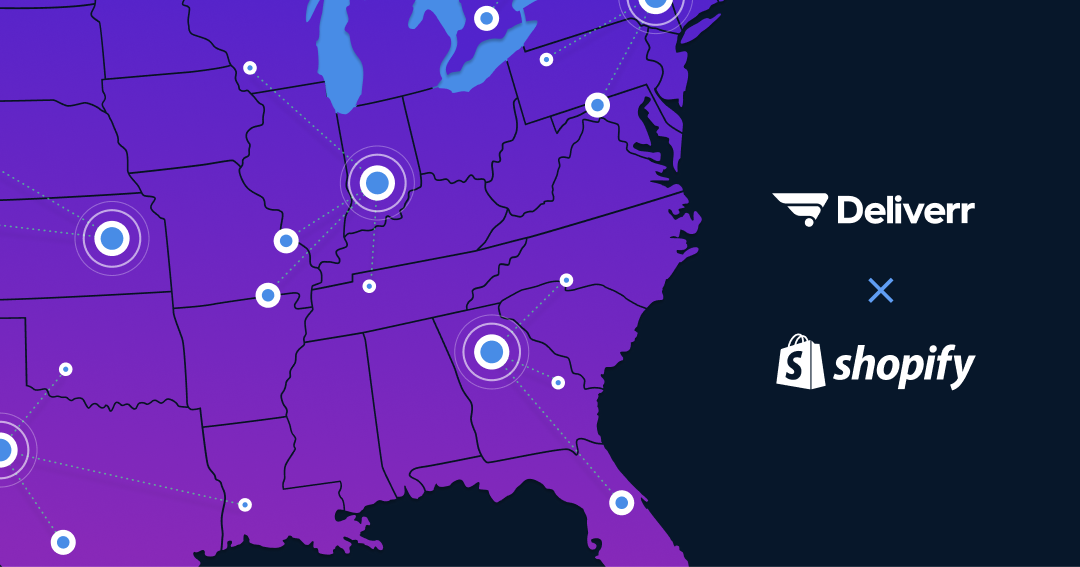
If you aren’t familiar with Deliverr, let me bring you up to speed.
Deliverr is a shipping logistics startup valued at $2B, serving brands like eBay, Amazon, Target, Shopify, and Walmart. The company raised almost $500M in total funding, and it has received recognition from top media publications like Forbes, Business Insider, and The New York Times.
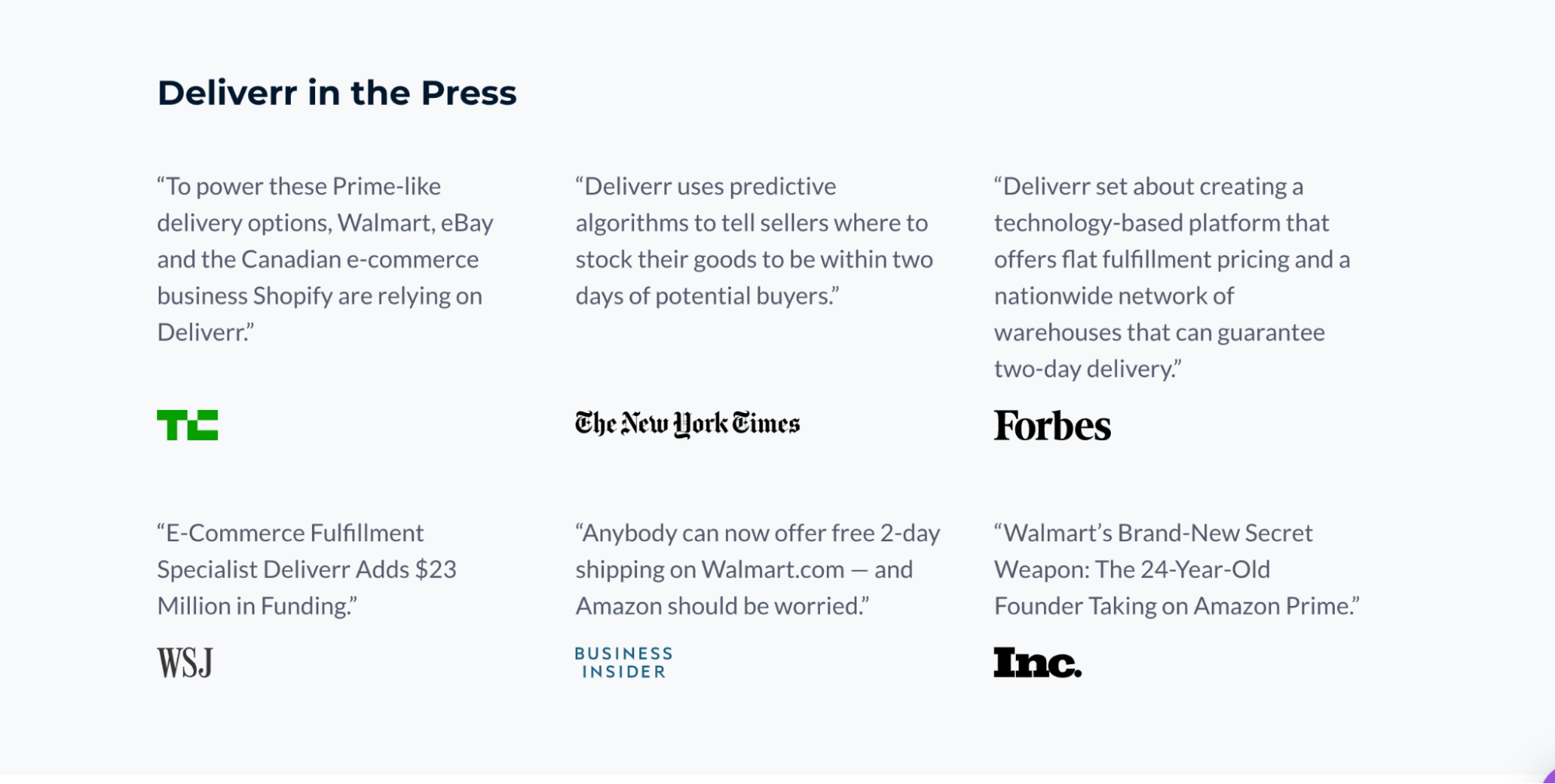
Among all its customers, Shopify saw Deliverr as a chance to do more good for its fulfillment network, hence the acquisition. Shopify president Harley Finkelstein shares that the company plans to use automation and logistics technology to build out a network of both Shopify-owned and third-party warehouses that can deliver packages in two days or less to more than 90% of the U.S.
The Deliverr acquisition is the largest in Shopify’s history.
If you’re wondering why Shopify will make such a massive investment, here’s a major reason: The global fulfillment market was valued at $86B in 2021, and it’s estimated to be worth $198.62B by 2030. As of Q4 2021, Shopify grew to be nearly 50% as large as Amazon Marketplace, after surpassing $54 billion in GMV.
By integrating Deliverr’s technology and capabilities with its own, Shopify stands a better chance of capitalizing on delivery speed to catch up with Amazon and dominate the market.
Acquiring a brand that offers complementary services is a great way to expand your product offering or eliminate a portion of the competition. And in this case, Shopify made a great move choosing Deliverr, a brand with a great track record and potential.
You don’t have to build solutions from scratch every time, especially if you have a big budget. You can look out for a company already succeeding in an area of interest, make an offer, and incorporate the product or service and team to improve your offerings.
From an organic traffic perspective, the acquisition is a great investment. We found that almost 80% of Deliverr’s traffic comes from direct and search channels. Deliverr has invested in content marketing, building authority around niche keywords.
Here’s what its search scorecard looks like:
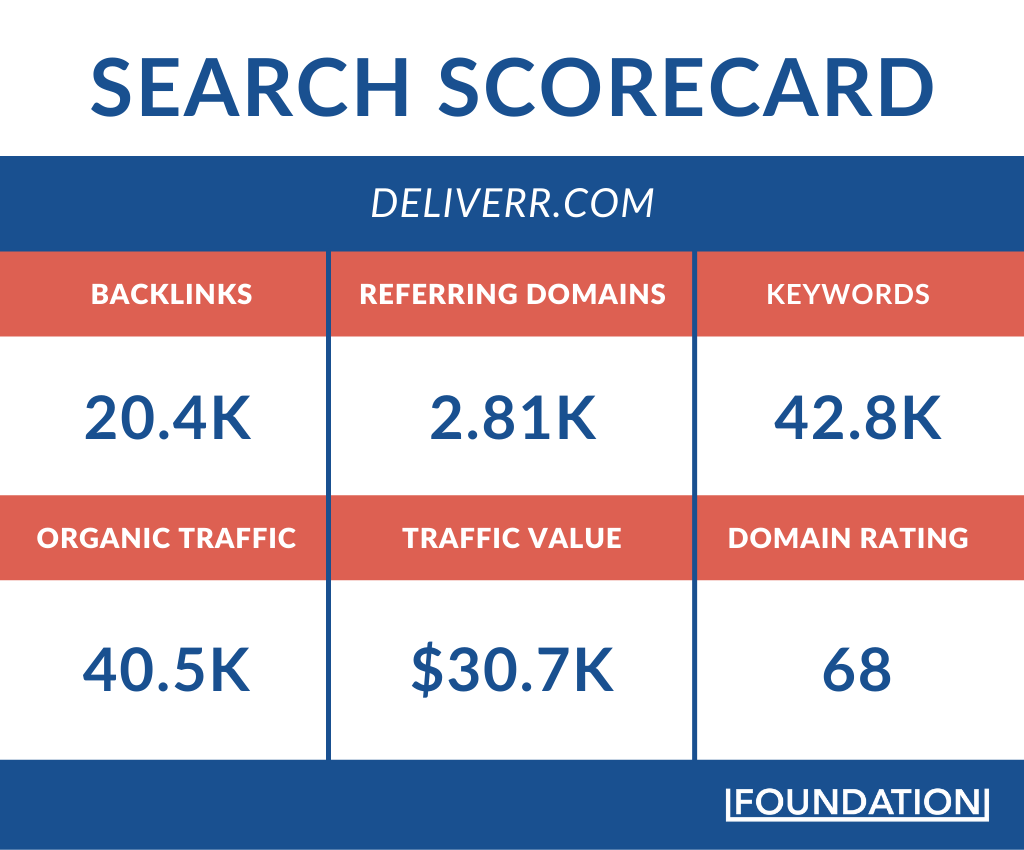
Deliverr ranks #1 for several niche long-tail keywords with a decent search volume and organic traffic. Here are some of their top keywords:
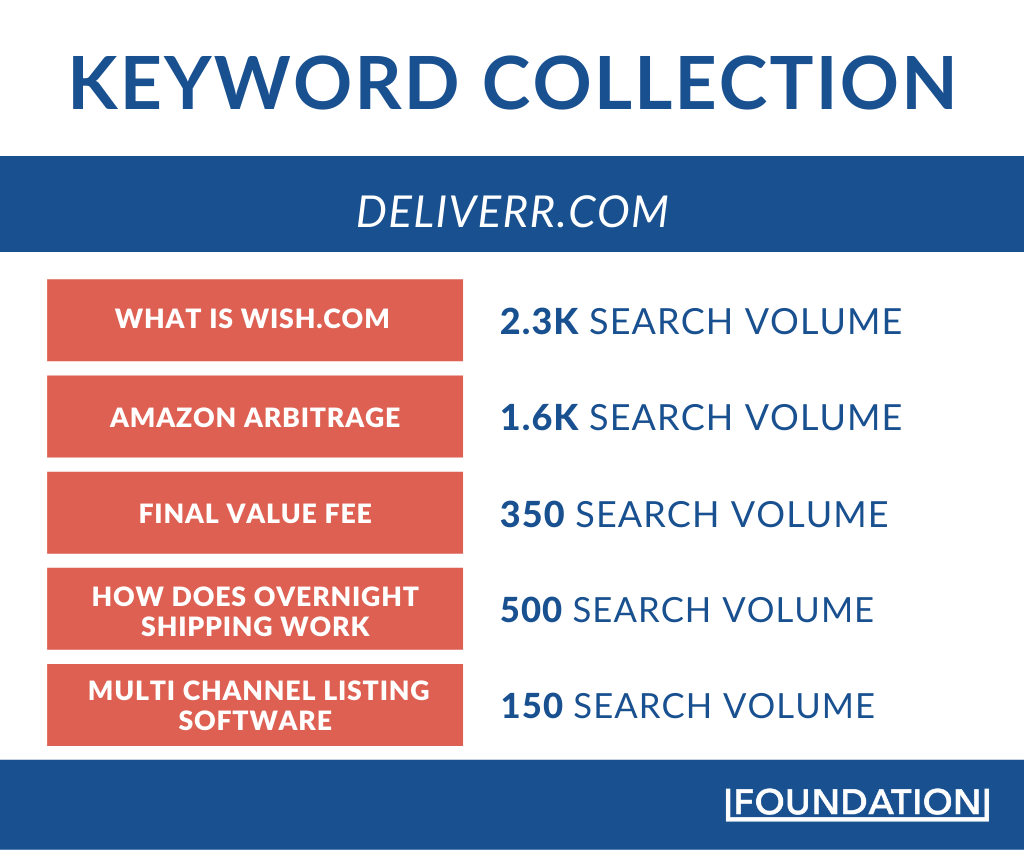
Notice how each of these keywords is geared towards positioning the brand as an authority and go-to solution for prospects and existing customers. No wonder over 5,000 businesses trust it to fulfill millions of orders.
Deliverr’s organic traffic moat is another steal for Shopify. It strengthens Shopify’s authority in the industry from a product and content standpoint, increasing its chances of growing its customer base and meeting their needs.
KEY TAKEAWAYS
- Shopify acquired Deliverr for $2.1B to improve its fulfillment network offerings.
- The acquisition will boost Shopify’s delivery speed and efficiency as it integrates Deliverr’s technology and capabilities with its own. That positions Shopify better to catch up with Amazon in the battle for market dominance.
- Acquisitions are a great way to expand your product offering and/or eliminate a portion of the competition.
- Deliverr’s organic traffic moat strengthens Shopify’s authority in the industry, increasing their chances of growing their customer base and business.
NerdWallet’s SEO Topic Clusters Drive $84M in Organic Revenue
Why do you create content? To position your brand as an authority? Generate demand and close prospects? Improve existing customer relationships?
If these are the reasons you create content, you’re right on track. However, even with these reasons in mind, it’s easy to fall into the trap of creating content that either overanalyzes your ideal user’s problem, offers generic solutions, or overemphasizes your product’s features.
A better way to build a high-converting demand gen engine is to create pieces that don’t fall on any of these extremes. That means leveraging a strategy that allows you to holistically address your reader’s pain points. Such a strategy positions you as an authority in the eyes of prospects and search engines.
That’s the SEO topic cluster strategy.
NerdWallet executes this strategy well while surfing their website in search of some personal finance advice.

When I dug deep, I saw NerdWallet’s website generates $84M in traffic value every month with this strategy. They didn’t achieve this feat by relying on random blog posts to get the job done. Instead, they built a cluster of related, optimized content around topics their audience was searching for at every stage of their buying journey.
As a result, 18 million people land on their website every month. Here’s what their search scorecard looks like:
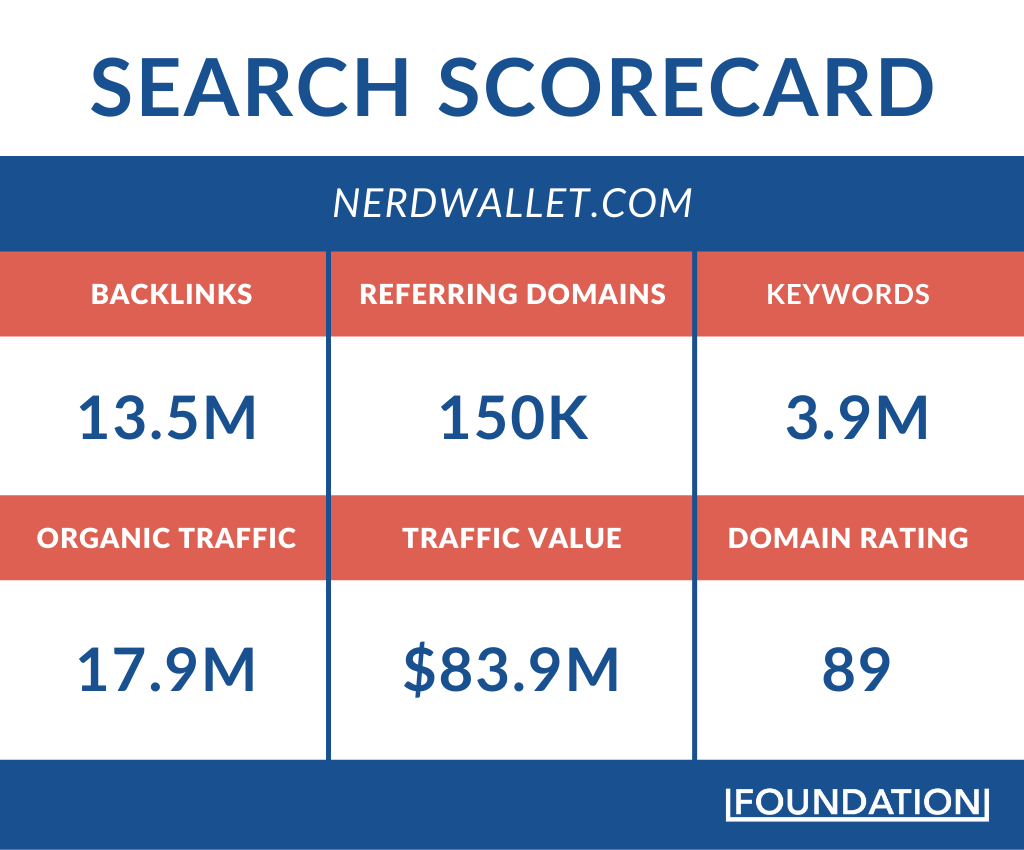
NerdWallet clustered its content pieces around nine topics relevant to the searcher’s intent. Each of these nine topics has pillar pages and related cluster pages that satisfy the searcher’s intent at every stage of the funnel and drive demand for the corresponding NerdWallet tool.
See what its topic clusters look like:
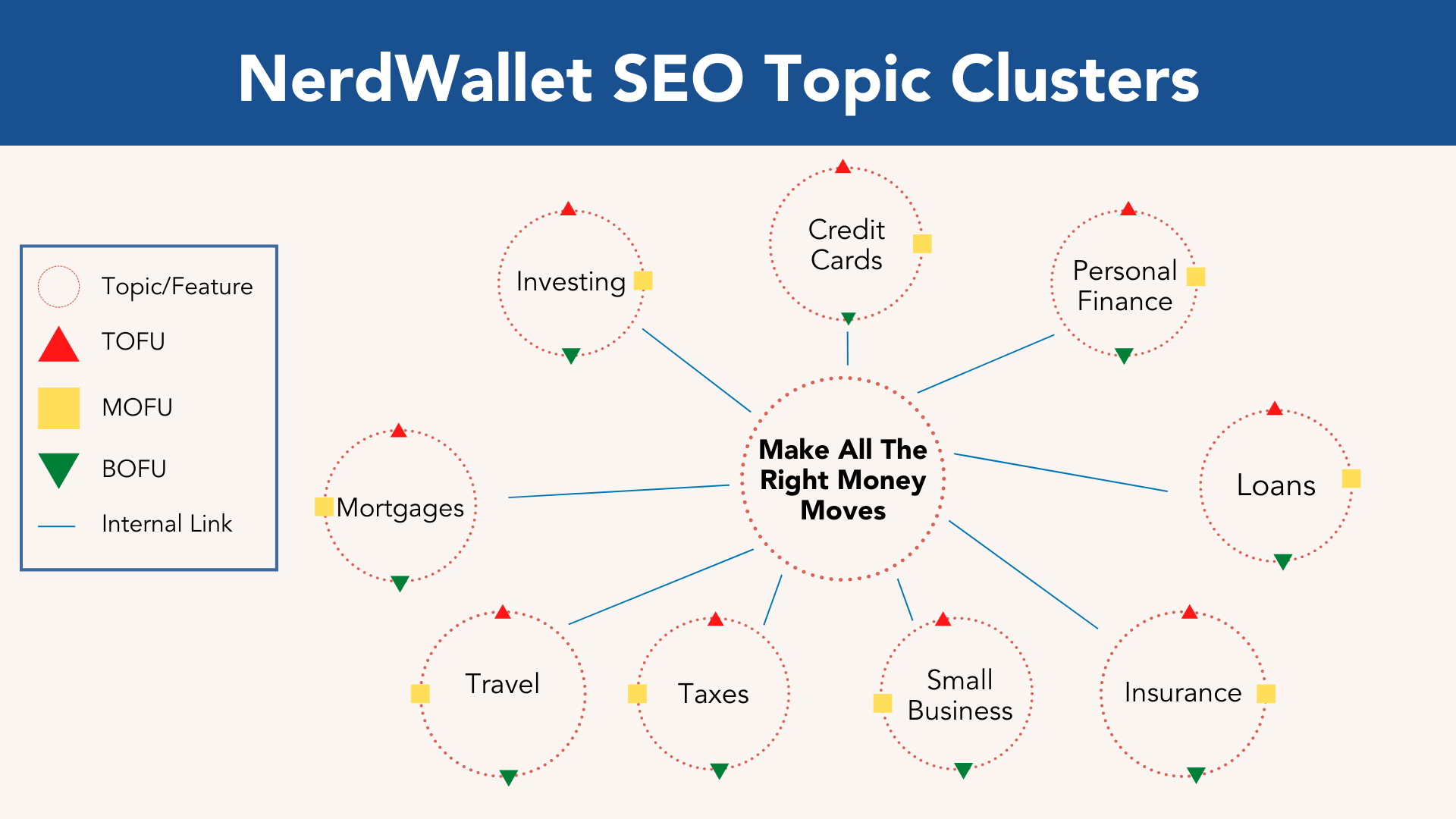
What’s brilliant about NerdWallet’s SEO topic cluster strategy is how it ties back to its value proposition as the go-to resource center for individuals looking to make the right money moves.
Its implementation of this strategy shows how you can convert a user from a single content piece or multiple related content pieces, giving you a short sales cycle, less sales friction, and more conversions. I’m confident this approach contributed to NerdWallet’s 600M+ valuation and over 39 million monthly users.
You can steal and improve on their strategy if you want to generate qualified leads and close more deals. I broke down how NerdWallet implements the topic cluster strategy at every stage of the sales funnel, including how you can create SEO topic clusters for your brand. You can read the full article here.
KEY TAKEAWAYS
- NerdWallet’s website generates $84M in traffic value every month with SEO topic clusters.
- The company built a cluster of related, optimized content around nine money-related topics their audience search for at every stage of their journey.
- NerdWallet’s execution of this strategy shows how you can convert a user from a single content piece or multiple related content pieces, giving you a short sales cycle, less sales friction, and more conversions.
Did You Know Facebook Is Giving Up Its Audio Ambitions?
With the Elon-Twitter acquisition and Johnny Depp trial trending, it may have slipped that Facebook (owned by Meta) is giving up its ambitions to dominate the podcast and audio space for more meaningful endeavors.
TechCrunch shared last week that Facebook decided to discontinue its audio services, Soundbites and Audio Hub, and podcast service barely one-year post-launch. Its Live Audio Room feature will be the only audio feature to be integrated into Facebook Live.
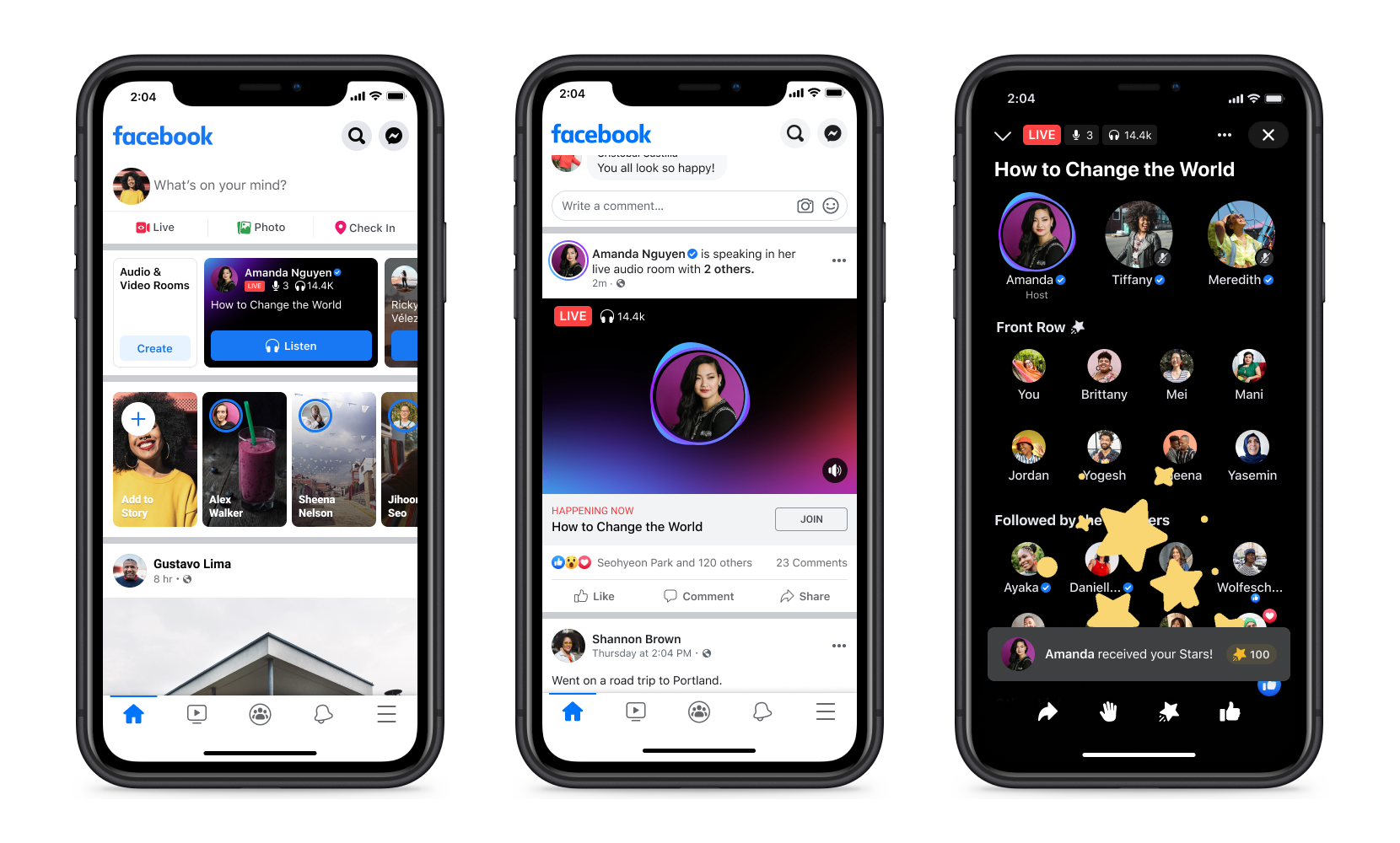
Its parent company, Meta, is prioritizing short-form video with Instagram and possibly Facebook. Perhaps this move has a lot to do with TikTok’s continued investment in its platform, including the launch of its ad product.
I see Meta trying to focus its energy rather than splitting the energy going up against TikTok on the short-form video side and Apple/Spotify on the podcast side of things.
I also believe this decision to focus their efforts on improving existing features with more potential will help increase their chances of maintaining their position at the top before they start to lose their users to TikTok.
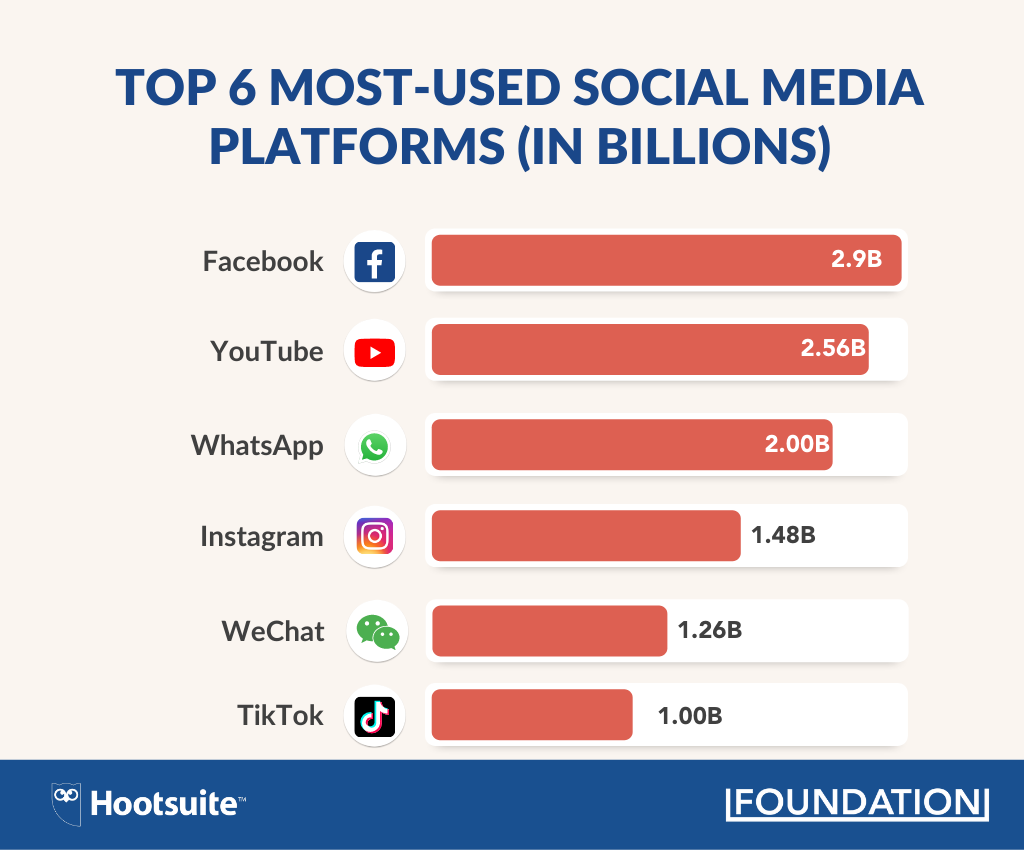
TikTok is already gaining ground, and with its first ad product launched last week, they stand a better chance of attracting more B2B and B2C creators and companies.
KEY TAKEAWAYS
- Facebook is killing its audio ambitions to prioritize short-form videos.
- Its Live Audio Room feature will be integrated into Facebook Live.
- Focusing their efforts on improving their video features, which have shown more potential, will increase their chances of staying at the top rather than lose users to TikTok and other competitors.
OTHER NEWS OF THE WEEK:
- TikTok launched TikTok Pulse, a new feature that lets creators earn from advertising next to the top 4% of all videos on TikTok.
- ActiveCampaign acquired transactional email service Postmark and email authentication and monitoring service DMARC Digests to improve customer experience.
- Stripe rolled out Plaid competitor Financial Connection to help companies connect to customers’ bank accounts. Plaid CEO questions Stripe’s methods.
- You can now access analytics and more with the latest Twitter Spaces features.
BRAIN FOOD OF THE WEEK:
I shared this piece a while back, but it’s worth resurfacing since impostor syndrome is something we all deal with in some way and to some degree.
Impostor syndrome is no stranger to high achievers. It’s the dreadful, nagging feeling that sneaks up on you each time you have an opportunity to showcase your expertise or when you achieve a major milestone that attracts the attention and praise of others.
You feel like you’re not good enough, and someday, everyone will see that they made a mistake trusting and choosing you.
The problem with impostor syndrome is that success doesn’t take the feeling away. The more you accomplish great things, the more you feel like a fraud.
Here are three ways you can deal with impostor syndrome:
📞 Reach out to someone who will remind you how great you are.
That trusted someone could be a friend, partner, spouse, or anyone willing to lift you in those moments.
🗃 Keep a record of personalized customer testimonials.
Marie Forleo calls it a hype file—a list of compliments from customers and people you’ve helped in the past. The next time the impostor feeling shows up, you can open the hype file and read those words aloud to remind yourself.
📈 Track your successes, failures, and what you’ve learned from them.
Tracking these metrics helps you appreciate your progress, avoid complacency, and keep the fear of failure from holding you back.
When you see how much impact you’ve made in the lives of others (and how you’ve evolved), it will encourage you to keep pushing forward.
TWITTER THREAD OF THE WEEK:
How To On-Board Yourself When Starting A New Job by Wes Kao
INTERESTING FINDS ACROSS THE INTERNET
- Three Keys To Fundraising For A Startup
- 15 ‘Golden Rules’ For Hosting A Webinar That Engages And Converts
- How to Be a Compassionate Manager in a Heartless Organization
- 14 Key Steps Marketers Can Take To Prepare For A ‘Cookie-Less’ World
- The Most Effective 4-Step Feedback System for Leaders and Entrepreneurs
IN CASE YOU MISSED SOME OF OUR GREATEST HITS:
- How MongoDB is Winning Against Massive Cloud Competitors
- How NerdWallet Uses SEO Topic Clusters to Drive Traffic Worth $84M
- How ClickUp Went From $0-$20M ARR in Two Years
- The SEO Strategy Capterra Uses to Drive $4M Worth of Traffic
- How Grammarly Built A $13B+ Brand Targeting Simple Typos
WHAT WE’RE WIRED INTO THIS WEEK 🎧:
These round-ups are brought to you by me, Jessica O., every week ✌!







